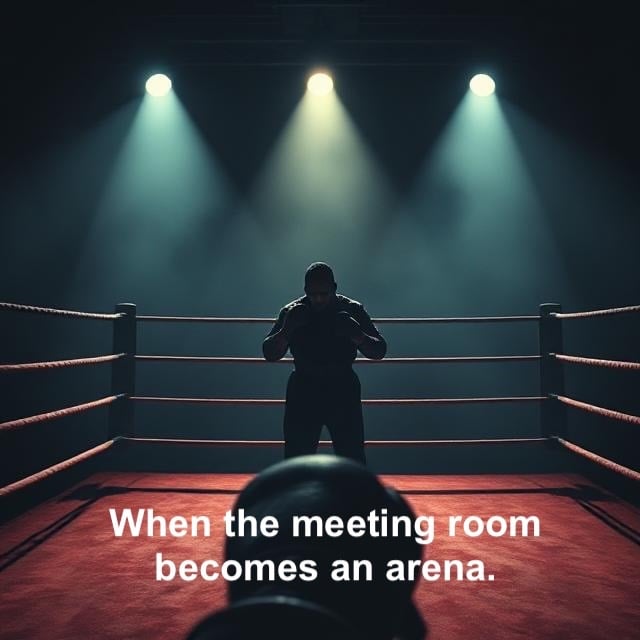Workplace Conflict
CONFLICT - It's Inevitable, But How You Handle It Matters
Dr. J.
7/6/2025


We've all been there - that moment when tension rises, and emotions start to flare. Whether it's in a meeting, the break room, or even in our personal lives, conflict is an unavoidable part of the human experience.
But how we choose to respond can make all the difference.
Too often, our first instinct is to react in counter-productive ways:
1. Fight or flight - This initial surge of adrenaline will push us to be angry or even a bit scared. Neither is conducive to healthy communication.
2. Agitated body language - Once the adrenaline kicks in, we can become fidgety, flushed red, and start talking in a cracked voice.
3. Immediate defensiveness - We can start to mirror the other's tone or level of aggression, interrupt and attempt to "one up" that person. We can cross our arms, start to frown, and shut ourselves off.
4. Cognitive decline - Instead of opening up our reasoning, we focus on defending ourselves and defeating our "opponent." This shuts out possibilities for dialog.
There is a better way; an approach that allows us to de-escalate, build bridges, and even strengthen relationships in the face of conflict.
Here are five proven techniques that can help you navigate even the most challenging situations:
1. Don't take it personally - Take a deep breath and remember that the other person's behavior is most likely a reflection of their own emotions, not a personal attack.
2. Observe the situation - Take a moment to look around the room, notice the body language of those involved, and get a sense of the underlying dynamics at play.
3. Remain open and relaxed - Keep your own body language neutral and approachable, signaling that you're not a threat (don’t cross your arms, or tighten your face).
4. Listen empathetically - Allow the other person to express their concerns, and then reflect back what you've heard to show that you understand (“OK, I see what you’re saying,” or, “Yes, I would be upset, too.” Ask them to tell you more.
5. Set boundaries - If the situation continues to escalate, don't be afraid to firmly but politely state that you're willing to discuss the issue, but won't tolerate disrespectful behavior. If it persists, leave.
By putting these strategies into practice, you can transform conflict from a source of stress and frustration into an opportunity for growth, connection, and collaborative problem-solving.
So, the next time you find yourself facing a challenging situation, remember - conflict is inevitable, but how you handle it is up to you.
I'd love to hear your thoughts and experiences in the comments below. What do you think? Have you tried any of these? When do they work or not work?
#conflictmitigation #leadership #communicationskills. Portions published on https://www.linkedin.com/in/dr-j-andrew-kuypers-9322b728
